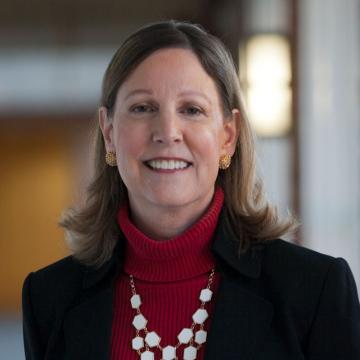How past presidents showed moral leadership
Miller Center expert Barbara Perry tells NPR's All Things Considered how previous presidents led in times of crisis
Listen to the full interview on NPR
On Tuesday afternoon, three days after violent clashes between white nationalists and counterprotesters in Charlottesville, Va., President Trump insisted that both sides were to blame.
A reporter asked the president if he meant to put what he called the "alt-left" and white supremacists on the same moral plane.
"I'm not putting anybody on a moral plane," Trump said. "What I'm saying is this: You had a group on one side and you had a group on the other, and they came at each other with clubs, and it was vicious, and it was horrible."
It was a departure from the traditional remarks typically heard from presidents — and it has sparked a conversation about President Trump and the moral authority of his office.
Whether it was the calm, solemn addresses of Franklin D. Roosevelt, the plain-spoken calls to patriotism of George W. Bush, or the precise, professorial speeches of Barack Obama, Americans often have looked to presidents for moral clarity in critical moments.
While Americans often take the idea of the president as a moral leader for granted, Barbara Perry, a presidential historian in Charlottesville at the University of Virginia's Miller Center, says she has traced this concept back to Abraham Lincoln's Gettysburg Address in 1863.
The North and South were divided in the middle of the Civil War, and Lincoln sought to bring the country together by pointing to our common heritage, Perry says.
"He points to the fact that our common heritage is that our forefathers came upon this continent and created a new nation, dedicated to the proposition that all men are created equal," Perry tells NPR's Audie Cornish. "To me it is the ultimate presidential speech of unification, grief, calming — but also uplifting and inspirational."
In 1963, President Kennedy called upon Lincoln's address when he called segregation a "moral issue." In a televised address to the nation, Kennedy outlined his decision to authorize the deployment of the National Guard in Alabama, where Gov. George Wallace was trying to block two black students from entering the University of Alabama.
From the start of his presidency, Perry says Kennedy "walked a fine line" between the Southern segregationist and civil rights factions of the Democratic Party. But the violence against peaceful protesters in Birmingham, Ala., invigorated him to finally take a stand for civil rights.
"It pushed him over that line, and the new line was to declare that the crusade for civil rights was a moral crusade," she says. "And to say to the American people that this is an issue that is as old as the scriptures, and is clear as our Constitution."
